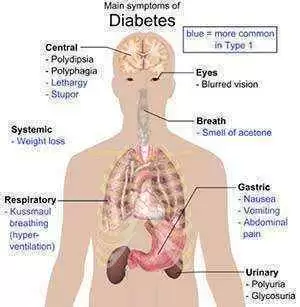Celiac.com 04/18/2016 - Some studies have shown dietary gluten has been proven to play a role in both celiac disease and type 1 diabetes (T1D), and others have suggested as much, but stopped short of actual proof.
 A team of researchers recently set out to assess the role of gluten in celiac disease and Type 1 diabetes. The research team included G Serena, S Camhi, C Sturgeon, S Yan S, and A Fasano. They are variously affiliated with the Graduate Program in Life Sciences at the University of Maryland School of Medicine in Baltimore, Maryland and with the Center for Celiac Research, Mucosal Immunology and Biology Research Center at Massachusetts General Hospital and Division of Pediatric Gastroenterology and Nutrition, Massachusetts General Hospital for Children in Boston.
A team of researchers recently set out to assess the role of gluten in celiac disease and Type 1 diabetes. The research team included G Serena, S Camhi, C Sturgeon, S Yan S, and A Fasano. They are variously affiliated with the Graduate Program in Life Sciences at the University of Maryland School of Medicine in Baltimore, Maryland and with the Center for Celiac Research, Mucosal Immunology and Biology Research Center at Massachusetts General Hospital and Division of Pediatric Gastroenterology and Nutrition, Massachusetts General Hospital for Children in Boston.
Celiac.com Sponsor (A12):
Some studies have shown dietary gluten has been proven to play a role in both celiac disease and type 1 diabetes (T1D), and others have suggested a the same.
In celiac disease, gluten is the know autoimmune trigger. When the trigger is removed by the patient following a gluten-free diet, that autoimmune process stops, the gut heals, and the patient's serological markers for celiac disease usually return to normal.
However, for T1D, researchers have not been able to find a causative agent, something like gluten in celiac disease. Nevertheless, researchers continue to debate the role of dietary gluten in development of T1D, and the potentially beneficial effect of removing gluten from the diet of patients with T1D.
In a recent review, their team discusses the comorbid occurrence of celiac disease and T1D and explore current evidences for the specific role of gluten in both conditions, specifically focusing on current evidence on the effect of gluten on the immune system and the gut microbiota.
Read more in Open Original Shared Link.









Recommended Comments
There are no comments to display.